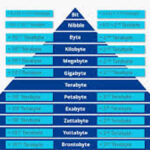In today’s rapidly evolving digital landscape, organizations seek platforms that not only streamline operations but also enhance productivity through automation and intelligent data management. Melmod emerges as a powerful solution designed to meet these needs by integrating AI-driven tools with flexible workflow automation capabilities. Within the first 100 words, it is essential to understand that Melmod addresses the core intent of users searching for a modern, scalable platform that improves efficiency, accelerates decision-making, and simplifies complex processes through customizable automation. This article delves into the features, benefits, architecture, and real-world applications of Melmod, providing an extensive overview to help businesses leverage this technology effectively.
Melmod’s strength lies in its ability to unify various digital processes under a single, easy-to-use interface while incorporating advanced artificial intelligence to predict trends, automate repetitive tasks, and support better resource allocation. As companies increasingly face challenges related to data overload, fragmented workflows, and the need for rapid adaptability, Melmod offers an integrated platform to overcome these obstacles and foster innovation.
Understanding Melmod: An Overview
Melmod is a comprehensive digital workflow platform built to support businesses across industries by automating routine tasks and enhancing data-driven strategies. Unlike traditional automation software, Melmod leverages machine learning algorithms to learn from past data, optimize workflow sequences, and provide actionable insights in real time. The platform’s architecture supports modular integration, allowing companies to connect it with existing enterprise resource planning (ERP), customer relationship management (CRM), and other specialized software systems.
The platform supports a wide range of applications, from marketing automation to supply chain optimization, making it suitable for organizations aiming to digitize and future-proof their operations. Melmod’s AI components continuously analyze data patterns to recommend improvements, predict resource needs, and flag potential bottlenecks before they occur.
An important facet of Melmod is its user-centric design. It empowers users with limited technical expertise to configure and modify workflows using drag-and-drop tools and predefined templates, while also offering API access for developers to build custom integrations. This versatility makes Melmod accessible and adaptable across departments, fostering collaboration between technical and non-technical teams.
Key Features of Melmod
Melmod’s extensive feature set is designed to drive productivity and efficiency. Here are some core functionalities:
1. AI-Powered Automation: Melmod uses machine learning to automate repetitive tasks such as data entry, report generation, and email responses. Its AI continuously improves automation accuracy by learning from user behavior.
2. Workflow Designer: A visual workflow builder allows users to map processes effortlessly, creating multi-step automated sequences without coding. Conditional logic, triggers, and deadlines can be configured.
3. Real-Time Analytics: The platform provides detailed dashboards and reports, tracking workflow performance and key performance indicators (KPIs) to inform decision-making.
4. Integration Capabilities: Melmod supports seamless integration with popular business tools and APIs, ensuring data flows uninterrupted between platforms.
5. Scalability: Designed to handle growing data volumes and complex workflows, Melmod can scale horizontally or vertically based on business needs.
6. Security and Compliance: The platform adheres to industry-standard security protocols, including data encryption and access controls, and supports compliance with regulations such as GDPR and HIPAA.
Table 1: Melmod Feature Overview and Benefits
| Feature | Description | Business Benefit |
|---|---|---|
| AI-Powered Automation | Automates repetitive and predictive tasks | Saves time, reduces errors, increases productivity |
| Workflow Designer | Drag-and-drop interface for building workflows | Enables easy customization, speeds deployment |
| Real-Time Analytics | Performance tracking dashboards | Facilitates data-driven decisions |
| Integration Support | Connects with multiple third-party tools | Enhances interoperability, reduces silos |
| Scalability | Supports increasing workload and data complexity | Future-proofs operations |
| Security & Compliance | Data protection and regulatory adherence | Ensures trust and legal compliance |
Melmod Architecture and Technical Insights
Melmod’s architecture follows a modular microservices approach, which promotes flexibility and resilience. Each functional component, such as the AI engine, workflow orchestrator, and analytics module, operates independently yet communicates through secure APIs. This structure ensures that updates or scaling in one module do not disrupt the entire system.
The AI engine at the heart of Melmod employs a blend of supervised and unsupervised learning models to adapt workflows dynamically. It ingests historical data, identifies patterns, and makes proactive adjustments to task sequences. For example, if delays are detected in a supply chain process, Melmod can automatically reroute orders or alert managers.
Data management within Melmod is robust, with support for structured and unstructured data formats. The platform includes a data lake feature that stores raw and processed data, enabling complex queries and machine learning operations without latency. This design supports real-time analytics, crucial for time-sensitive industries such as finance and healthcare.
Security is baked into Melmod’s foundation, featuring multi-factor authentication, role-based access control, and end-to-end encryption. Regular security audits and compliance certifications reinforce its suitability for sensitive environments.
Real-World Applications of Melmod
Melmod’s flexibility allows it to be tailored for multiple sectors, including manufacturing, finance, healthcare, and marketing. Below are notable use cases demonstrating its impact:
Manufacturing: Melmod optimizes production lines by automating machine maintenance scheduling, inventory tracking, and supplier communication. Predictive analytics prevent downtime by forecasting equipment failures.
Finance: The platform automates routine compliance checks, fraud detection, and customer onboarding, reducing manual labor and improving accuracy. Real-time reporting supports risk management.
Healthcare: Melmod streamlines patient data management, appointment scheduling, and medical billing, ensuring regulatory compliance and improving patient experience.
Marketing: Automation of email campaigns, social media posting, and lead scoring allows marketing teams to focus on strategy rather than execution. AI-powered insights improve targeting and content personalization.
Table 2: Melmod Industry Use Cases and Impact
| Industry | Use Case Description | Key Impact |
|---|---|---|
| Manufacturing | Predictive maintenance, inventory automation | Reduced downtime, improved efficiency |
| Finance | Compliance automation, fraud detection | Enhanced accuracy, regulatory compliance |
| Healthcare | Patient scheduling, billing automation | Better patient experience, cost savings |
| Marketing | Campaign automation, AI-driven lead scoring | Higher engagement, optimized marketing spend |
How Melmod Supports Business Transformation
Beyond automation, Melmod plays a pivotal role in digital transformation initiatives. By connecting disparate systems and enabling seamless data flow, it breaks down silos that often hinder innovation. The platform’s AI capabilities help businesses transition from reactive to proactive management styles, anticipating challenges and capitalizing on opportunities faster.
Executives appreciate Melmod’s ability to deliver actionable insights through comprehensive analytics. According to business strategist Linda Harris, “Platforms like Melmod don’t just automate; they transform decision-making by turning data into foresight.” This shift results in more agile organizations capable of responding to market changes with precision.
Moreover, Melmod’s user-friendly design democratizes technology, allowing teams beyond IT to participate in process improvements. This inclusivity fosters a culture of continuous innovation where operational bottlenecks are identified and resolved collaboratively.
Implementation Best Practices for Melmod
Successful adoption of Melmod requires strategic planning and organizational alignment. First, businesses should identify key processes that benefit most from automation and set measurable objectives. Engaging stakeholders from multiple departments ensures workflows reflect real-world needs.
Training is crucial. While Melmod offers intuitive interfaces, users need guidance on leveraging AI features and interpreting analytics. Companies that invest in ongoing education report faster ROI and better user satisfaction.
Data quality management must be a priority. Since Melmod’s AI relies heavily on input data, cleansing and standardizing datasets improves output reliability. Integration planning is also vital to avoid disruption and ensure smooth data transfer across systems.
Lastly, continuous monitoring and iteration help maintain workflow relevance as business conditions evolve. Melmod’s reporting tools enable performance tracking and facilitate timely adjustments.
The Competitive Landscape: Melmod vs. Alternatives
The digital workflow market includes various players such as UiPath, Automation Anywhere, and Microsoft Power Automate. Melmod distinguishes itself with deeper AI integration and flexible customization options. While some competitors focus primarily on robotic process automation (RPA), Melmod combines RPA with predictive analytics and real-time decision support.
Cost structures vary, but Melmod offers competitive pricing tiers tailored for small to large enterprises. Customer feedback often highlights Melmod’s ease of use and responsive support as differentiators. As analyst Mark Thompson notes, “Melmod bridges the gap between complex AI and practical automation in a way few platforms have achieved.”
Future Outlook and Innovations in Melmod
Looking ahead, Melmod plans to enhance its AI models with natural language processing (NLP) to enable conversational automation and improve user interaction. Expansion of low-code capabilities will further empower business users to create sophisticated workflows without developer dependency.
Sustainability features are also in development, helping companies track and optimize resource consumption within automated processes, aligning with global environmental goals. As industries continue digital transformation journeys, Melmod is poised to remain a vital tool by evolving with emerging technologies such as edge computing and blockchain integration.
Conclusion: Melmod as a Catalyst for Digital Excellence
Melmod represents a significant advancement in the digital workflow and automation space. It addresses the core challenges faced by modern organizations — complexity, data overload, and the need for rapid adaptation — through an intelligent, scalable, and user-friendly platform. By automating routine tasks, providing real-time analytics, and integrating advanced AI, Melmod empowers businesses to optimize operations and make informed decisions faster.
In the words of technology expert Dr. Anil Kumar, “Melmod is not just a tool; it’s a strategic partner for any organization committed to innovation.” This platform’s ability to unify processes, improve collaboration, and predict future needs ensures that companies can maintain a competitive edge in a fast-changing environment.
Businesses aiming to future-proof their workflows and accelerate digital transformation will find Melmod an indispensable asset. Its robust architecture, extensive integration capabilities, and commitment to security position it as a leader in workflow automation. As the digital world grows ever more complex, Melmod offers clarity and control, making it a cornerstone of tomorrow’s operational excellence.
FAQs
Q1: What types of businesses benefit most from Melmod?
Melmod’s versatile and benefits organizations across manufacturing, finance, healthcare, marketing, and many other sectors looking to automate workflows and leverage AI for better decision-making.
Q2: Does Melmod require coding knowledge to use?
No, Melmod features an intuitive drag-and-drop workflow designer suitable for non-technical users, though APIs are available for advanced customizations.
Q3: How does Melmod ensure data security?
The platform uses encryption, multi-factor authentication, role-based access controls, and complies with regulations like GDPR and HIPAA to protect sensitive information.
Q4: Can Melmod integrate with existing enterprise systems?
Yes, Melmod supports integration with popular ERP, CRM, and other software systems via APIs, ensuring seamless data flow.
Q5: Is Melmod scalable for growing businesses?
Absolutely. Melmod is designed to handle increasing data volumes and complex workflows, allowing businesses to scale operations without compromising performance.











